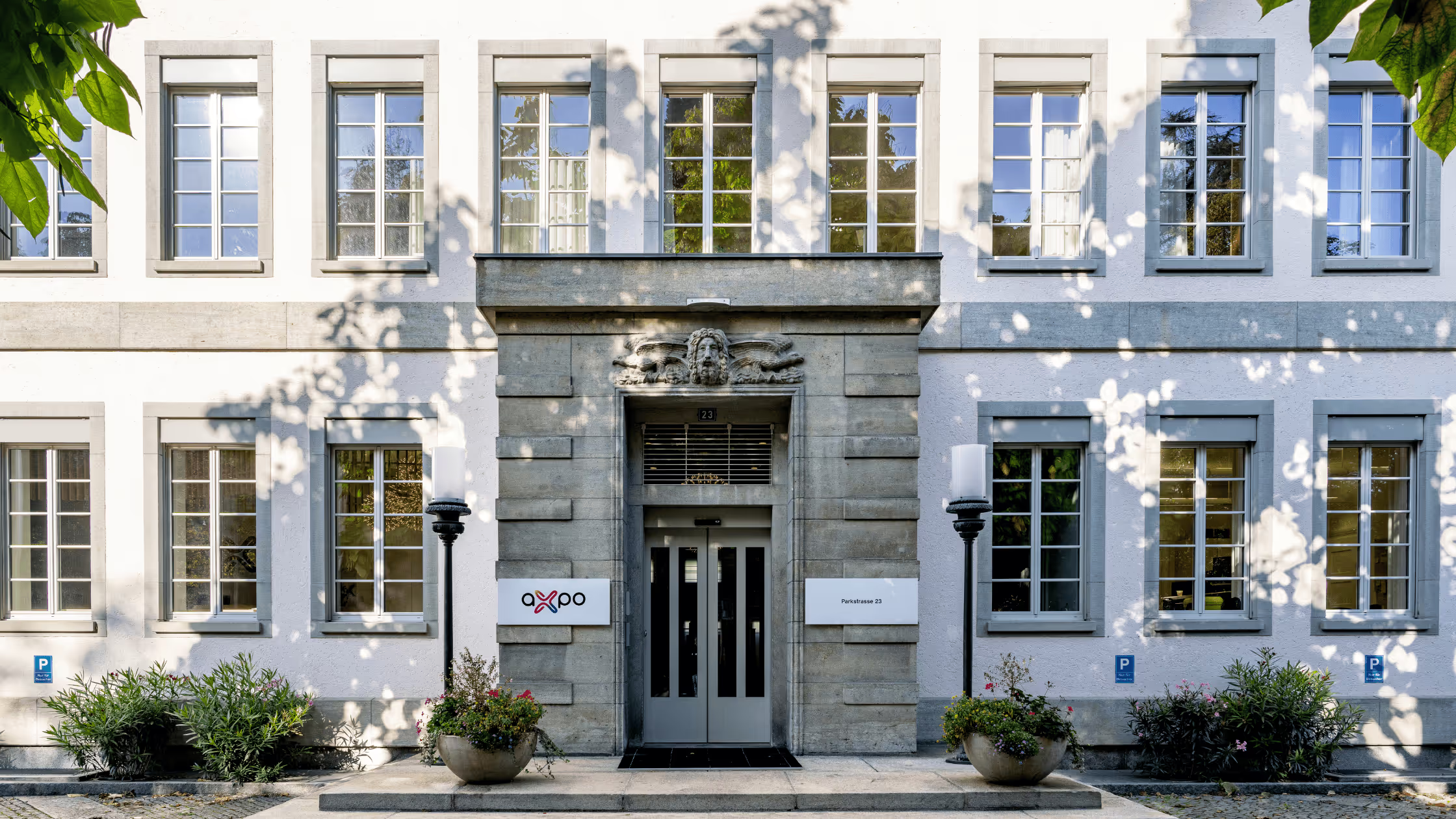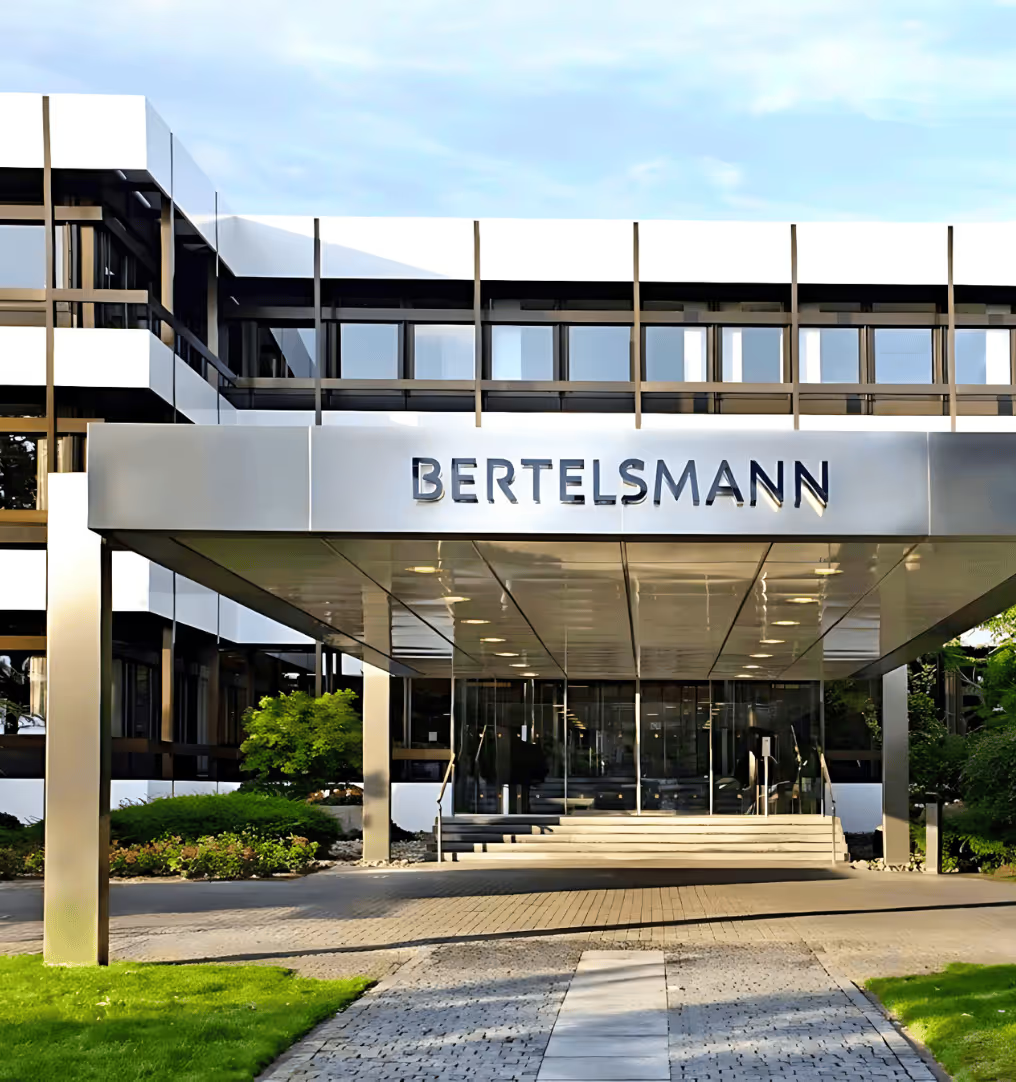RBIs Weg zur Exzellenz in der Beschaffung durch Digitalisierung von der Planung bis zur Strategie

Auf einen Blick
Hauptsitz
Industrie
Andere Technologien
Über RBI
Raiffeisen Bank International ist eine führende Geschäfts- und Investmentbank, die in 24 Ländern Mittel- und Osteuropas tätig ist. Über ein Netzwerk von Tochterbanken und fast 50 Unternehmen, die keine Banken sind, bedient die RBI einen breiten Kundenstamm im Unternehmens-, Privat- und Privatkundengeschäft. Die RBI ist bekannt für ihre starke regionale Präsenz und ihren Innovationsfokus und setzt sich für Exzellenz, Compliance und nachhaltige finanzielle Leistung ein.
„akirolabs ermöglicht eine nahtlose Kommunikation und Zusammenarbeit zwischen allen an unserem Beschaffungsprozess beteiligten Akteuren. Die Plattform fungiert als zentrale Drehscheibe für den Wissensaustausch, und ihre KI-Fähigkeiten und ihr Ansatz zur Szenariomodellierung stellen sicher, dass unsere Strategien effektiv auf die Geschäftsziele abgestimmt sind.“
— Edzard Jansen, Leiter des Konzerneinkaufs, Raiffeisen Bank International
Die Herausforderung
Das Beschaffungsökosystem der Raiffeisen Bank International, das in 24 Ländern mit über 140 internen und externen Lieferanten in 14 Schlüsselmärkten tätig war, war hochkomplex. Der dezentrale Charakter des Geschäfts hatte dazu geführt, dass die Beschaffungsprozesse innerhalb von Regionen, Einheiten und Geschäftseinheiten unabhängig voneinander verwaltet wurden — oft mit lokalen Tools, Ad-hoc-Workflows und unterschiedlichen Reifegraden.
Insbesondere das Kategorienmanagement litt unter einer Fragmentierung. Ohne einen zentralisierten Ansatz waren Strategien oft auf einzelne Regionen beschränkt, in getrennten Dokumenten gespeichert und basierten auf inkonsistenten Daten. Die Beteiligten hatten keinen einheitlichen Ort, an dem sie Beiträge einbringen, Ziele vereinbaren oder grenzüberschreitend zusammenarbeiten konnten. Dies machte es fast unmöglich, die Beschaffung auf eine Weise durchzuführen, die durchgehend einen strategischen Mehrwert bot.
„Wir mussten den Presourcing-Prozess digitalisieren und alles auf einer Plattform zusammenführen. Ziel ist es, dass alle Beteiligten Zugriff auf interne, externe und Bedarfsdaten haben — strukturiert und über ein System gemeinsam genutzt.“
— Petra Posch-Zottl, Leiterin Gruppenkategorie- und Lieferantenmanagement
Die Einschränkungen machten nicht bei Ineffizienzen halt. RBI arbeitet in einem der anspruchsvollsten regulatorischen Rahmenbedingungen in Europa. Regulatorische Anforderungen von Stellen wie der Europäischen Zentralbank, lokale Datenschutzgesetze und Cybersicherheitsrahmen bedeuteten, dass die Beschaffung jederzeit die vollständige Überprüfbarkeit von Entscheidungen, Lieferantendaten und Vertragsbeziehungen nachweisen musste.
Manuelle Dokumentation, fragmentierte Plattformen und nicht verknüpfte Vertragsdaten setzten das Unternehmen Compliance-Risiken aus und schränkten seine Fähigkeit ein, interne Lieferketten mit externen Partnern zu verknüpfen. Die funktionsübergreifende Zusammenarbeit zwischen Beschaffungs-, Rechts-, Risiko- und Geschäftsbereichen war inkonsistent und reaktiv.
„Man kann die Stakeholder nicht sequentiell einbeziehen — man muss es parallel durchführen. Das ist uns in den letzten Jahren sehr gut gelungen: Wir haben Compliance, DSGVO, IT und Sicherheit zusammengebracht, um eine echte Stakeholder-Community zu schaffen.“
— Armin Balutsch, Leiter Gruppentransformation und Outsourcing
Die letzte Ebene der Komplexität betraf Menschen und Talente. Den Beschaffungsteams in den verschiedenen Regionen fehlte ein einheitliches System oder ein einheitlicher Rahmen, um Strategien zu entwickeln, Informationen auszutauschen oder voneinander zu lernen. Das Kategorienwissen war in Silos gefangen, und die Bereitschaft der Mitarbeiter war von Standort zu Standort sehr unterschiedlich.
Angesichts der steigenden Anforderungen des Unternehmens, der zunehmenden Komplexität der Compliance und der inkonsistenten Betriebsmodelle erkannte RBI, dass seine Beschaffungsfunktion — insbesondere das Category Management — eine neue Grundlage benötigte. Eine, die Prozesse vereinheitlichen, Transparenz und Rechenschaftspflicht durchsetzen und eine kollaborative, datengestützte Beschaffungskultur aufbauen konnte.
Die Lösung
Um die Fragmentierung ihrer Beschaffungsorganisation zu überwinden und die Strategie in den Vordergrund zu rücken, wandte sich RBI an Akirolabs. Anstatt ein weiteres eigenständiges Sourcing-Tool zu implementieren, suchte RBI nach einer Plattform, die vernetzen Sie Strategie, Umsetzung, Daten und Mitarbeiter — mit dem Category Management im Mittelpunkt.
akirolabs stellte RBI eine zentralisierte, KI-fähige Beschaffungsplattform zur Verfügung, die die gesamter Presourcing-Prozess — einschließlich der Beiträge von Interessengruppen, Marktinformationen, Risikofaktoren, Nachfragedaten und internen Zielen. Dadurch war man nicht mehr auf E-Mail-Threads, Excel-Dateien und isolierte Systeme angewiesen.
„Man bringt alle auf die Plattform und arbeitet dann mit den Umfragetools, sodass alle Daten bereits strukturiert sind.“
— Petra Posch-Zottl, Leiterin Gruppenkategorie- und Lieferantenmanagement
Jetzt beginnt jede strategische Beschaffungsinitiative innerhalb von Akirolabs. Interne und externe Stakeholder beteiligen sich frühzeitig und konsistent durch strukturierte Arbeitsabläufe. Category Manager steuern den Prozess mithilfe von Echtzeitdaten und Marktanalysetools, die in die Plattform integriert sind — wie SWOT, PESTLE, Porter's 5 Forces und Aufschlüsselungen der Kostentreiber — und stellen sicher, dass jede Strategie umfassend informiert und aufeinander abgestimmt ist. akirolabs beherbergt auch zentrales Strategie-Cockpit und Wissensspeicher, sodass jedes Team Zugriff auf historische Entscheidungen, Vorlagen, strategische Rahmenbedingungen und Compliance-fähige Unterlagen hat. Diese Konsistenz hilft neuen Benutzern, sich schnell einzuarbeiten, und ermöglicht es, Kategoriestrategien mit Präzision weiterzuentwickeln, anstatt nur Vermutungen anzustellen.
„Die zentrale Beschaffungsplattform und das Strategie-Cockpit haben uns dabei geholfen, ein Wissensarchiv für alle zu schaffen, das einen einfachen Zugriff auf relevante Informationen und Daten bietet. Das ist von entscheidender Bedeutung, da das Stakeholdermanagement wirklich der Schlüssel ist.“
— Petra Posch-Zottl, Leiterin Gruppenkategorie- und Lieferantenmanagement
Bei der Transformation ging es nicht nur um Werkzeuge, sondern auch um Menschen. Um die Entwicklung von Kapazitäten weiter zu unterstützen, integrierte RBI Akirolabs in seine bestehenden Akademie für Beschaffung — eine interne Initiative, die zuvor ins Leben gerufen wurde, um Teams in der gesamten Bank weiterzubilden. Die Idee war, allen Mitarbeitern der Beschaffungsorganisation die gleiche Gelegenheit zu geben, sich das entsprechende Wissen anzueignen, unabhängig davon, wo die Beschaffung stattfindet. Durch die Konsolidierung der Beschaffung in einem intelligenten, kollaborativen System hat RBI nicht nur Ineffizienzen behoben, sondern auch den Grundstein für eine skalierbare, strategische Beschaffung gelegt, die Teams stärkt, Ergebnisse beschleunigt und die Widerstandsfähigkeit gegenüber behördlichen Auflagen gewährleistet.
„Wir arbeiten zusammen, tauschen Marktinformationen über die integrierten KI-Tools aus und definieren die Strategie für jede Unterkategorie innerhalb der Plattform... Indem wir alle auf die Plattform bringen und Umfragetools verwenden, stellen wir sicher, dass alle Daten strukturiert und transparent sind.“
— Petra Posch-Zottl, Leiterin Gruppenkategorie- und Lieferantenmanagement, Raiffeisen Bank International
Das Ergebnis
Die Einführung von Akirolabs durch RBI markierte einen Wendepunkt in der Beschaffung — von fragmentierten Prozessen und unzusammenhängenden Kategorienstrategien hin zu einer hochintegrierten, datengesteuerten und zukunftsfähigen Funktion.
Die Bank arbeitet jetzt mit einem eine einzige Quelle der Wahrheit für die Beschaffung in allen 14 Schlüsselmärkten. Da die Kategoriestrategien gebietsübergreifend ausgerichtet sind und die Beiträge der Stakeholder von Anfang an digital strukturiert sind, sind Beschaffungsentscheidungen schneller, transparenter und strategischer ausgerichtet. Die Beschaffung ist keine isolierte Backoffice-Funktion mehr — sie ist ein wichtiger Faktor für Ihr Geschäft.
„Endlich haben wir diese volle Transparenz, und so können wir diese Beziehungen verwalten. Die Verantwortung für alle internen und externen Lieferbeziehungen unterscheidet uns von anderen Beschaffungsorganisationen.“
— Edzard Janssen, Leiter Konzernbeschaffung, Outsourcing und Immobilienmanagement
Das Beschaffungsteam von RBI hat nun die volle Kontrolle und Transparenz über die Leistung der Lieferanten, die Einhaltung gesetzlicher Vorschriften und das Risiko. Mit einem integrierten Vertragslebenszyklusmanagement und einer klaren Verbindung zwischen internen und externen Lieferketten kann die Bank sowohl auf betriebliche Anforderungen als auch auf Compliance-Audits schnell reagieren.
„Wir haben jetzt den gesamten Beschaffungsfluss unter einem Dach abgedeckt.“
— Konstantin Redko, Leiter Tools & Prozesse, RBI Procurement
Daher geht es bei der Beschaffung bei RBI nicht mehr nur darum, Kosteneinsparungen voranzutreiben — es geht darum Fahrfähigkeit, Beständigkeit und Wettbewerbsvorteil. RBI hat sich nicht nur als führendes Unternehmen im Bereich der Digitalisierung der Beschaffung im Finanzdienstleistungssektor positioniert, sondern auch als Modell für den Aufbau einer strategischen, skalierbaren Einkaufsorganisation, die sich an die sich ändernden Geschäftsanforderungen anpasst.
Sind Sie bereit, Ihre Beschaffungsstrategie zu transformieren?
Es gibt einen besseren Weg, die Beschaffung zu erledigen. Das ist IT.
.avif)

